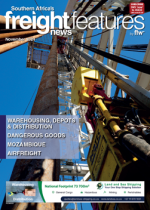Transglobal Cargo has positioned itself as a leading player in the dangerous goods (DG) logistics sector, thanks to substantial investments in skills, training and specialised assets. According to general manager James Xulu, the company's focus has expanded beyond staff training to also ensure clients understand the complexities of constantly changing legislation and DG procedures."While many companies invest in training their staff, we observed frequent movement within the sector, often creating a skills gap," he said. "One of our latest innovations has been providing tailored guidance to clients, sharing our expertise through customised training programmes to bridge this gap."In the last five years, Transglobal Cargo has invested heavily in specialised assets, designed specifically for DG transport, allowing the company to elevate its service offering. "Controlling the entire supply chain for DG logistics ensures compliance and eliminates challenges for our clients, all while offering full tracking and visibility," said Xulu.The company has also made significant investments in IT support systems to monitor compliance, driver behaviour, vehicle safety and driver training. This focus on technology has helped reduce incidents, enhance safety and ensure ongoing compliance of vehicles and drivers.Despite these advancements, Xulu acknowledged the challenges faced by the DG sector in South Africa compared to international markets. "The rising cost of fuel, labour relations, a shortage of skilled workers, and regulations not tailored to our regional needs all impact our competitiveness globally," he said. "Security issues, like theft and infrastructure vandalism, also place a strain on port and rail operators, affecting their ability to offer reliable services."He said there were continuing concerns with electricity and rail infrastructure.“From a business perspective it is critical to have predictability, and that becomes difficult in these uncertain environments. At Transglobal we go above and beyond to ensure we offer our clients a reliable service. It is the cornerstone of what we do.”According to Xulu there are still gaps in the current regulations governing DG logistics, which have been under review for several years. “The current International Maritime Dangerous Goods (IMDG) regulations have been under review for the past five years, but there is still no clarity as yet – a worrying factor in such a sensitive space.”He pointed out that the lack of alignment between regulatory bodies was challenging at times. “This includes state-owned companies like Transnet that have difficulty aligning their divisions when it comes to DG – and this often complicates operations. For instance, Transnet National Ports Authority and Transnet Port Terminals require DG cargo to arrive via rail, but Transnet Freight Rail is often unable to accommodate such cargo in various locations."However, it is not all doom and gloom," said Xulu. "Conversations are ongoing, and there is a willingness to achieve alignment and attract investments. The privatisation of rail operations, for instance, promises improvements that could positively impact the DG logistics sector in South Africa." LV

